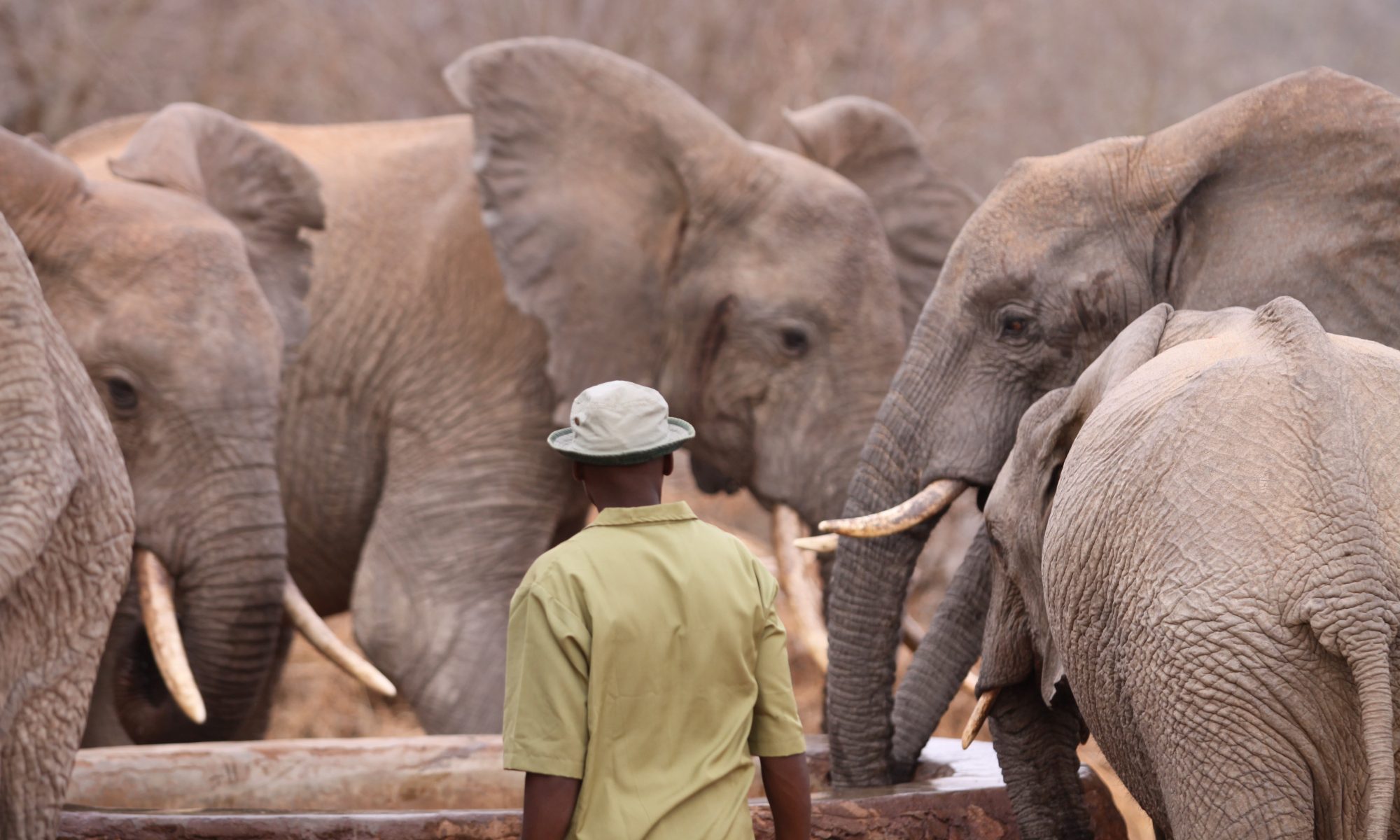
“If elephants in Tanzania are not protected from greedy poachers, the animals will be declared extinct within 10 years,“ warns Prof Pierre Pfeffer, a renowned wildlife conservationist who has spent most of his life in Africa, including Tanzania, studying the African jumbos.
The 83-year-old professor of Natural History Museum in Paris, France, who spent over 50 years studying elephants in Africa, adds: “During my spell in Africa from 1950 through 2000 scenes of dead elephants were everyday experience.“
“That situation has not changed today and it is becoming worse as reports of poaching in countries like Tanzania attract straddling global headlines,“ says the former French delegate to the Convention on the International Trade in Endangered Species (CITES), an international treaty that governs the trade, import and export of endangered plants and animals, including elephants.
Alan Pons, a French wildlife photographer and editor, says Tanzania should do all it can to protect its wildlife from poachers.
“Poaching is very bad because wildlife is very important to mankind. They have coexisted for centuries, and this coexistence should continue forever,“ says Pons, who has written more than five pictorial books on wildlife in Tanzania.
Christophe Peymirat, Vice-President and Managing Director of Egencia for the United Kingdom, says: “Poaching is not giving good image of Tanzania, especially for tourists.“
“Tourists need to visit places where animals are in safe environments,“ says the boss of Egencia, the fifth largest travel management company in the world, which delivers a higher standard of corporate travel service and innovative technology.
Concerned with the wave of poaching in Tanzania, the Wildlife Conservation Foundation of Tanzania (WCFT) has been organizing gala dinners in Tanzania, the United States and France to raise funds aimed at supporting anti-poaching activities and wildlife conservation in the country.
Founded in 2001 by Mr Gerard Pasanisi under the patronage of former US President George H. W. Bush, former Tanzanian President Benjamin Mkapa, former French President Valéry Giscard d’Estaing and its treasurer Archduke Lorenz of Austria-Este, the WCFT’s major goal is to raise funds to support the government of Tanzania in its fight against poaching.
During its nine years of existence, the WCFT has already organized gala dinners in Dar es Salaam in 2002, 2004, 2006 and 2008; in Paris in 2003, 2005 and 2010, and one in Dallas, United States, in 2006.
Speaking at a gala dinner in France on November 23, 2010, the WCFT President, Mr Valery Giscard d’Estaing appreciated the involvement of the government of Tanzania in the conservation of flora and fauna.
Mr Valery Giscard d’Estaing, the former President of France, recalled a declaration signed by Mwalimu Julius Nyerere in 1961, pledging the protection of wildlife when the Father of the Nation said: „The survival of our wildlife is a matter of grave concern to all of us in Africa.“
Mwalimu Nyerere added: “These wild creatures amid the wild places they inhabit are not only important as a source of wonder and inspiration but are an integral part of our natural resources and of our future livelihood and well being.“
However, Mr Giscard d’Estaing noted that Tanzania’s fragile ecosystem, even if protected, is still threatened by poaching activities.
“The drastic budgetary restrictions due to the global financial crisis do not facilitate the supervision and protection of the 230,000 square kilometres dedicated to conservation in Tanzania,“ he said.
He said Tanzania urgently needed financial support to assist the government, and especially the Wildlife Division in the Ministry of Natural Resources and Tourism in its efforts to protect the country’s unique wildlife resources.
He paid tribute to the WCFT Executive Vice-President, Mr Gerard Pasanisi, the chief organizer of the gala dinners, saying to date the organisation has been able to donate 12 four-wheel-drive vehicles equipped with state-of-the-art communication gadgets such as radios and global positioning systems (GPS) worth billions of shillings to the Wildlife Division for anti-poaching operations.
“We are all gathered here, tonight, to bring our support to this cause which is essential to preserve these unique territories, for our future generations,“ Mr Valery Giscard d’Estaing told his audience of chief executives from tourist hunting companies and other stakeholders in wildlife conservation. They contributed about $280,000 (about Sh420million) during the dinner held at the Carres des Champs Elysees.
In an interview with The Citizen, Mr Valery Giscard d’Estaing made an impassioned plea to the government of Tanzania to mete out stiff punishments to poachers who he says are staining the country’s reputation as Africa’s leader in wildlife conservation.
He said the resurfacing poaching, especially of elephants, in Tanzania has caused worldwide concern because wildlife is regarded as a global resource.
He added: “Stiff punishment to poachers will have a deterrent effect to people who intend to engage in the malpractice.“
The WCFT President was reacting to international media reports on intensifying poaching incidents in Tanzania where in most cases the culprits are left scot free or their cases drag in courts of law for years.
The Tanzanian Ambassador to France, Mrs Begum Taj, also thanked Mr Pasanisi for all what he had done for Tanzania in many years, saying wildlife resource was key to the nation’s economic growth as well as improvement of livelihoods of the people, especially those living in rural areas.
Ambassador Taj also thanked the WCFT for its commitment in fulfilling its obligations to support the government’s anti-poaching efforts by donating vehicles and assorted field gears for wildlife protection.
However, she requested WCFT to enhance its support to Tanzania, with an area covering 945,000 square kilometers, or 30 percent of its land, devoted to wildlife conservation with 14 national parks, 31 game reserves and 38 game controlled areas.
John J. Jackson, III, chairman of the US-based Conservation Force, a force for wildlife conservation, noted that the poaching had become serious enough requiring immediate action to be taken to get it under control. “It needs to be controlled before getting worse,“ he said.
Mr Jackson, III says Tanzania has the second largest elephant population in the world (second to Botswana) but its elephants have not been downlisted as those in South Africa, Namibia and Zimbabwe – all with combined elephant population less than Tanzania– adding that the poaching in Tanzania is largely a result of the failure to downlist the animals properly.
He says there is no question that the fundraising efforts of the WCFT are important, adding that the safari hunting industry and operators in Tanzania have always had a vital role in protecting habitat and controlling poaching.
“As noble as the anti-poaching fundraising is, it certainly will not be enough by itself to restrain the poaching. You must remember that the very presence of the hunting operators in the hunting areas retards poaching in and of itself,“ he says.
He adds that the gala dinner fund-raising and the safari hunting operators in the field complement, support and incentivize Tanzania government’s conservation efforts.
“There is a long history of that joint effort and that is the very reason Tanzania has grown to have the second largest elephant population in the world today,“ observes Mr Jackson, III.
The WCFT gala dinners, which have now become a tradition of the Foundation, brings together patrons and members as well as their friends and well-wishers to champion the cause of wildlife conservation.
Prof- Pfeffer, who is also former president of the World Wide Fund for Nature (WWF) in France, recalls 1989 when member states of CITES agreed at their meeting in Lausanne, Switzerland, to place the African elephant on CITES’ Appendix One, banning all trade in elephant ivory and products around the world.
He recalled- the Selous Game Reserve in southern Tanzania as a unique world heritage site covering 50,000 square kilometers, and- Africa’s largest protected reserve with one of the continent’s largest elephant populations.
During the wave of elephant poaching which hit much of Africa in the 1980s the Selous was estimated to have lost 70,000 elephants. Yet a catalogue of reports and evidence show that the reserve is still poorly protected and is prone to poaching.
In 2007, investigations by the Environmental Investigation Agency (EIA), an independent campaigning organisation committed to bringing about change to protect the world from environmental crime and abuse, reported complicity of government officials in the illegal trade.
The proportion of elephant deaths attributed to poaching jumped from 18 per cent in 2004 to 63 per cent in 2009. Aerial observations in one sector of the park during 2008 recorded 53 recently poached elephants, compared with 18 the previous year, according to EIA findings.
In 1988 Tanzania launched a major anti-poaching initiative called Operation Uhai. It combined efforts by wildlife rangers, police officers and the military, and managed to bring to a halt a wave of poaching in most parts of the country.
Tanzania also teamed with six other countries in successfully petitioning for the listing of the African elephant as an Appendix 1 species (those threatened by extinction) at CITES.
The listing effectively banned all international trade in elephants and their products.
The CITES campaign, marked by a successful international conservation awareness drive nearly eliminated demand for ivory worldwide, and most poaching subsequently stopped in response.
Western nations helped to maintain the campaign by pouring large sums of aid into anti-poaching efforts throughout Africa.
Collectively, it was probably the most effective act of international wildlife legislation in history, and public pressure was instrumental to its success.
By Lucas Liganga, The Citizen Chief Reporter
Paris.

